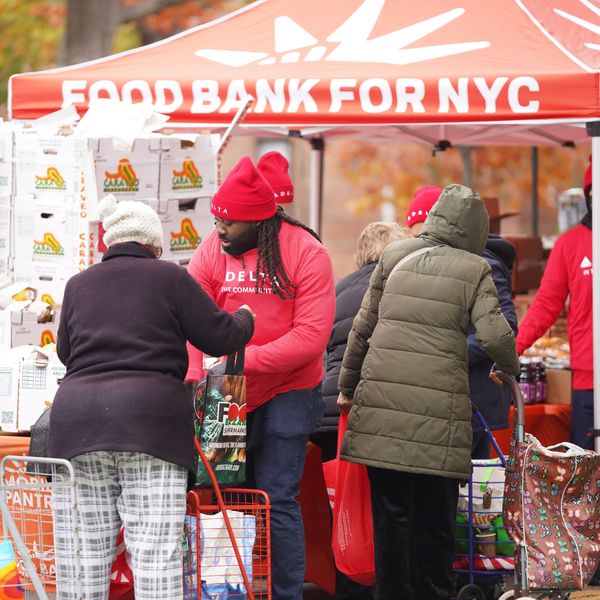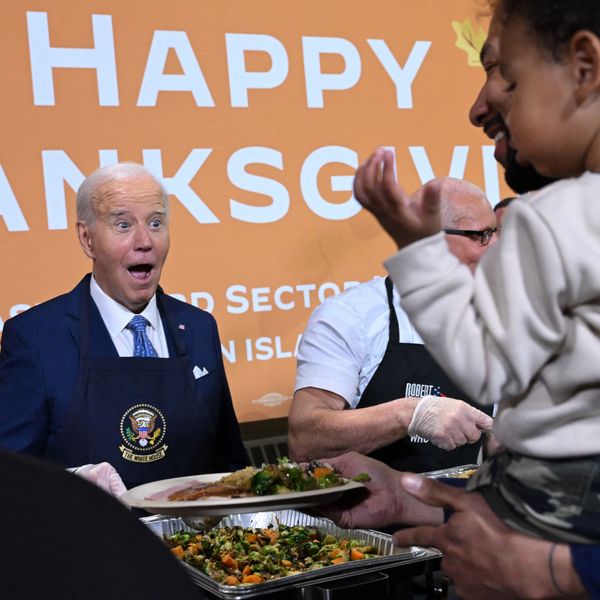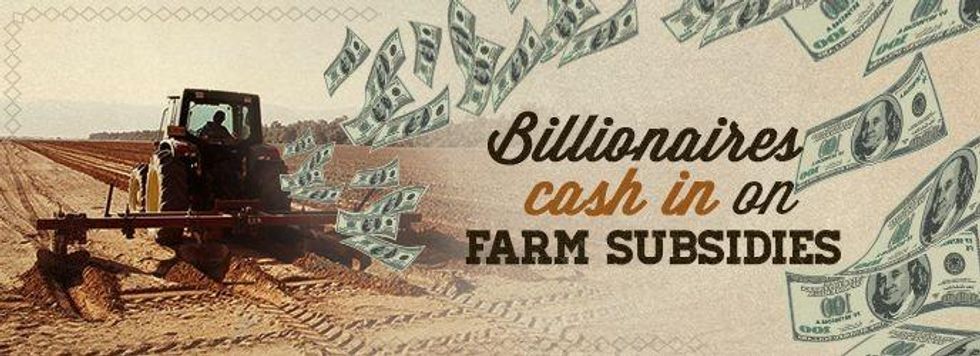Less than a week after supplemental food assistance was slashed by $5 billion and as Congress debates deeper cuts to the federal food stamp program within a new five-year farm bill, a new report released Thursday highlights how
billionaires continue to collect taxpayer-funded farm subsidies and may soon be eligible for even more.
According to the report Forbes Fat Cats Collect Taxpayer-Funded Farm Subsidies, authored by the Environmental Working Group (EWG), between 1995 and 2012 the federal government paid out $11.3 million to 50 billionaires or farm businesses in which they had an interest.
Though the billionaires' subsidies amount to a relatively meager portion of the federal budget, the report notes that a number of these 'Fat Cats' are eligible for even greater payments through the crop insurance loophole.
Unlike farm subsidies, crop insurance premium subsidy recipients are legally non-disclosed. Further, crop insurance subsidies are not subject to payment limits, conservation requirements or means testing, which permits the denial of subsidies to individuals with a certain amount of annual off-farm income.
"The irony," Scott Faber, EWG vice president for government affairs, told the New York Times, "is that farm subsidies are going to billionaires at the same time that there are proposals to kick three to five million people off of food stamps."
The report notes that proposed changes to the farm bill put forth by both the House and Senate will "shift subsidies from programs currently subject to means testing to the more generous crop insurance program," allowing a greater percentage of the funds to be doled out to undisclosed recipients of unknown net worth.
According to EWG's analysis,
more than 40 billionaires own properties that grow crops that are among the most likely to be insured through the federal crop insurance program, including corn, soybeans, wheat, cotton and sorghum. From 1995 to 2012, these five crops account for nearly $44 billion in premium subsidies - about 82 percent of total crop insurance subsidies and more than two-thirds of all acres enrolled in the crop insurance program.
As the Times points out, as legislators plan to shift money from farm programs with oversight requirements and income limits to less regulated crop insurance program, ironically, "other measures would subject food stamp recipients to drug testing, work requirements and income means-testing."
Further, EWG reports that the "largest one percent of farm businesses received about $227,000 a year in crop insurance premium support in 2011 - while the bottom 80 percent received only about $5,000 apiece."
_____________________



